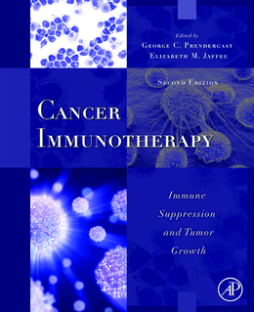
Additional Information
Book Details
Abstract
There has been major growth in understanding immune suppression mechanisms and its relationship to cancer progression and therapy. This book highlights emerging new principles of immune suppression that drive cancer, and it offers radically new ideas about how therapy can be improved by attacking these principles. Following work that firmly establishes immune escape as an essential trait of cancer, recent studies have now defined specific mechanisms of tumor immune suppression. It also demonstrates how attacking tumors with molecular targeted therapeutics or traditional chemotherapeutic drugs can produce potent anti-tumor effects in preclinical models. This book provides basic, translational, and clinical cancer researchers with an indispensable overview of immune escape as a critical trait in cancer and how applying specific combinations of immunotherapy and chemotherapy to attack this trait may radically improve the treatment of advanced disease.
- Offers a synthesis of concepts that are useful to cancer immunologists and pharmacologists, who tend to work in disparate fields with little cross-communication
- Drs. Prendergast and Jaffee are internationally recognized leaders in cancer biology and immunology who have created a unique synthesis of fundamental and applied concepts in this important new area of cancer research
- Summarizes the latest insights into how immune escape defines an essential trait of cancer
- Includes numerous illustrations, including how molecular-targeted therapeutic drugs or traditional chemotherapy can be combined with immunotherapy to improve anti-tumor efficacy and how reversing immune suppression by the tumor can cause tumor regression
"...an indispensable overview of immune escape as a critical trait in cancer and how applying specific combinations of immunotherapy and chemotherapy to attack this trait may radically improve the treatment of advanced disease."--Anticancer Research, January 2015
"Prendergast… and Jaffee…supply basic, translational, and clinical cancer researchers in immunology, biology, and pharmacology with 34 chapters on immunotherapy in cancer treatments. They address new principles of immune suppression in cancer and recent thinking in how immunotherapeutic and chemotherapeutic agents might be combined to defeat mechanisms of tumoral immune suppression and reprogram the inflammatory microenvironment of tumor cells to enhance long-term outcomes."--Reference & Research Book News, December 2013
